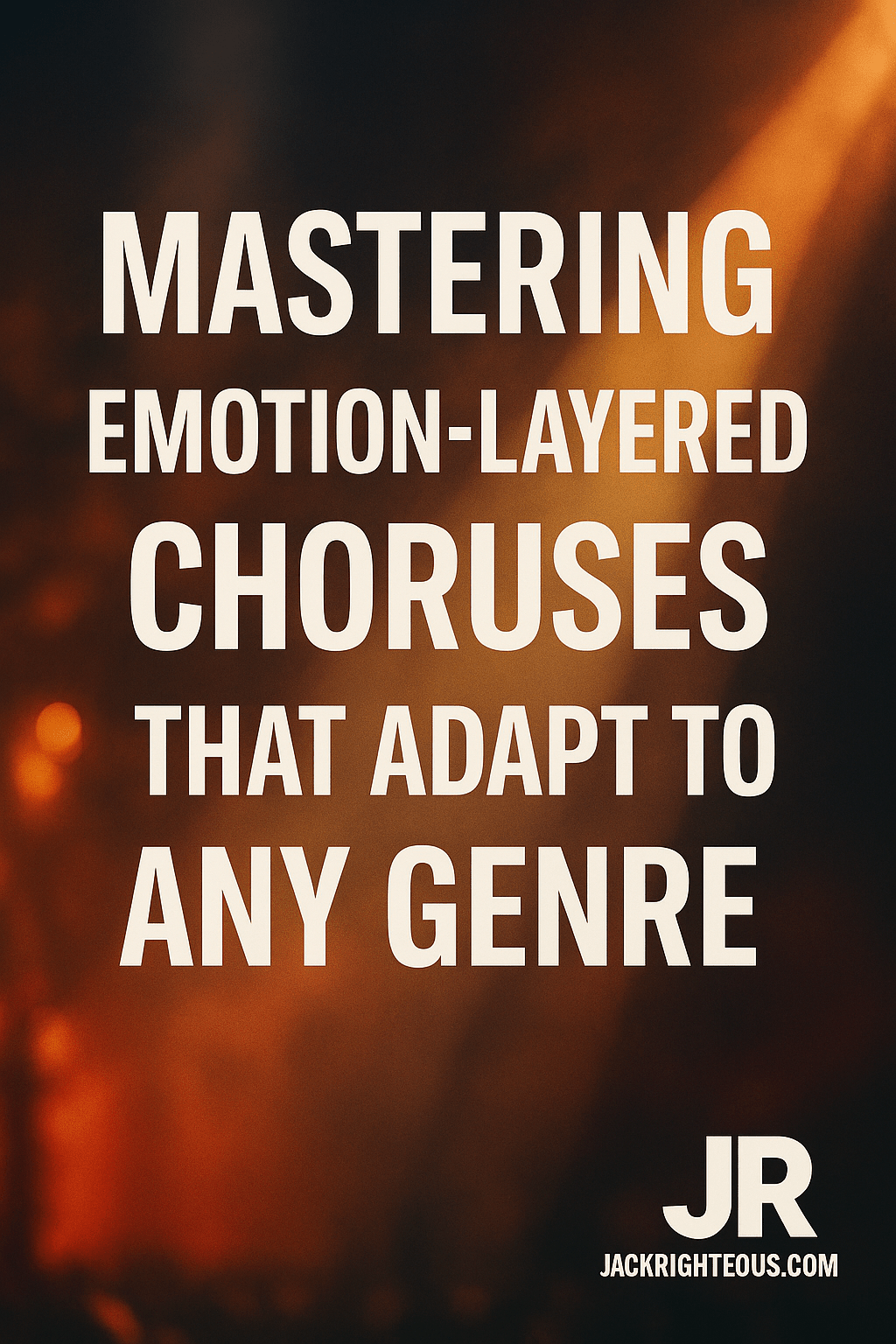
Create Emotion-Layered Choruses That Adapt in Suno
Gary WhittakerMastering Emotion-Layered Choruses That Adapt to Any Genre
Make Your Hook Hit—No Matter the Style
Why the Chorus Decides If Your Song Lives or Dies
In Suno, the chorus is more than a catchy moment—it’s your emotional core.
Whether you're crafting a danceable anthem or a cinematic lullaby, your chorus must:
- Carry the main message
- Adapt across remixes or genres
- Hit with emotional clarity on first listen
This guide shows how to construct choruses that work both musically and emotionally, and how to layer tone, style, and prompts to keep them adaptable—without sounding generic.
Step 1: Define the Emotional Role of the Chorus
Start by locking in your chorus’s emotional job.
Ask yourself:
- Is this chorus supposed to lift, break, reflect, or unite?
- Does it repeat a theme—or contrast the verses?
Examples of emotional chorus intent:
- “Breakthrough” – melodic lift, harmony stack, soaring phrasing
- “Collapse” – minor key drop, minimal vocals, reverb-heavy
- “Unity” – chantable, call-and-response, percussion-driven
Prompt Integration Tip: Always include a functional mood cue, such as:build to cathartic chorus with rising harmony
Step 2: Use Lyric Structures That Invite Flexibility
The wrong lyric format can block future remixes. The right one lets your chorus stretch across genres.
Best lyric shapes for adaptable choruses:
- Refrain-based (1–2 key lines repeated with slight variation)
- Call and response (great for crowd energy or layered vocals)
- Melodic build (lines grow in intensity or length)
Avoid:
- Complex rhyming that only works in one rhythm
- Overly specific cultural or local references (unless they define the song)
📌 The more modular your chorus, the more remix-friendly it becomes.
Step 3: Add Emotional Contrast With Instrumentation Tags
Instrumentation can shift how a chorus feels—even with identical lyrics.
Try balancing or reinforcing vocal emotion with musical cues:
Pairing ideas:
- Sad lyrics + warm guitar + low harmonies = intimacy
- Hopeful lyrics + orchestral strings + cinematic rise = inspiration
- Angry lyrics + minimalist piano + static vocal = tension
Prompt Build Example:[Chorus] chantable, high-energy delivery, build from strings to full band
💡 Tag changes like add ambient pad or use echo vocal FX work well in emotional remixes.
Step 4: Use Covers to Translate Emotion Across Genres
Your chorus doesn’t have to sound the same in every version—but it must feel the same.
When Covering a chorus for genre switch:
- Keep lyrics the same (or 90% intact)
- Shift genre and mood tags only
- Set sliders strategically:
- Weirdness: 10–30% for emotional stability
- Style Influence: 40–60% for genre translation
🎛️ Use Cover like a translator, not a replacement.
Step 5: Anchor Your Chorus With a Prompt Signature
An emotion-layered chorus should be recognizable by tone and structure.
Use this modular Suno prompt to lock the identity:
[Chorus] repeatable emotional release, genre-flexible structure
- Use layered harmony, rhythmic phrasing
- Anchor emotion with 2-line refrain and call-back echo
- Deliver hook in expressive lead voice
📌 Reuse this prompt and change surrounding sections for versioning.
Bonus: Remix-Friendly Chorus Template Prompt
Here’s a universal chorus builder for Suno:
[Chorus] layered emotional hook, chant-style or melodic peak
- repeatable lines with slight lyrical evolution
- genre-flexible arrangement: strings, synth pad, or power chords
- deliver with rising vocal or echoing harmony
Final Takeaway: Great Choruses Transcend Genre
A great chorus is not just catchy—it’s adaptable, evocative, and structurally sound.
Now you know how to:
- Design a flexible, emotional chorus structure
- Use instrumentation and lyric shape to cross genre lines
- Translate emotional tone using Cover with slider control
- Lock your chorus identity with a reusable prompt signature
Next Up: Scene-Based Prompting for Film, Ads, and TikTok Edits (released June 18th, 2025)

